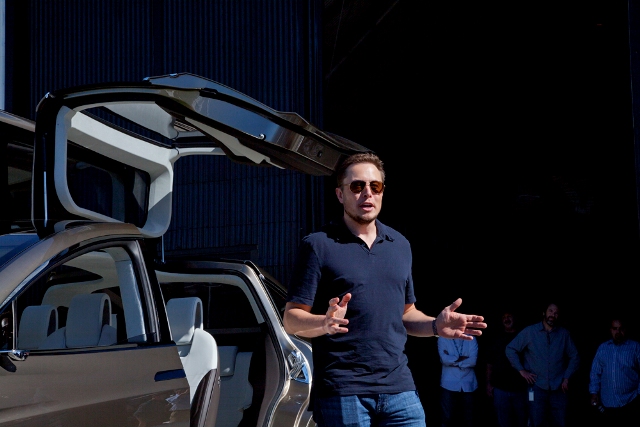The companies’ founders don’t just share business interests: they’re also family

Elon Musk is well-known in Silicon Valley as the founder of the luxury electric vehicle company Tesla Motors, and of SpaceX, the private space transport company.
What’s less well-known is Musk’s contribution to SolarCity, the solar installer and energy efficiency auditor. Musk inspired–and helped fund–the creation of the San Mateo-based solar company. And Tesla is working closely with SolarCity on a clean energy storage solution that would combine Tesla’s lithium-ion batteries with SolarCity’s rooftop solar arrays. The collaboration makes sense: not only is Musk the chairman of SolarCity, but the founders of the company, brothers Lyndon and Peter Rive, are his first cousins.
The Tesla-SolarCity clean energy storage program would couple batteries with solar arrays, providing a way to store solar energy for, say, a cloudy day. Stage one of the project began in 2010, with $1.8 million in funding from the California Public Utilities Commission (CPUC) to launch a research program. Now, stage two seeks to commercialize the program on a modest scale, with over 70 applications pending under the CPUC’s Self-Generation Incentive Program (SGIP), which provides rebates to customers using self-generated energy systems.
Although the subsidies have yet to be approved, CPUC information officer Andrew Kotch told GigaOm last week, “this emerging technology has a great amount of potential to contribute towards California’s climate and energy goals.” At present, the projects have a “conditional reservation,” and the CPUC will make a decision in the next 18 months.
As chairman of SolarCity, Elon Musk is not involved in such details or the day-to-day operations of the solar company, and CEO Lyndon Rive admits that his cousin’s time is very limited. He only contributes “maybe two hours a month” to the company — by phone — and three hours every quarter for board meetings. For your average chairman, that’s not much time to have a significant impact on a company. But Musk appears to have a rare gift for out the box thinking and strategizing.
“Elon is a phenomenal genius, so when he gives you the time and you lay out the plan, he can quickly identify the hole in the plan,” Rive told me. “This is the true definition of quality versus quantity. You can fix whatever potential pothole you might run into, just in a ten minute discussion with Elon.”
Musk manages to juggle all these projects — plus go to Burning Man — as Lyndon Rive explained in a recent Fresh Dialogues interview. In 2004, on a road trip to Burning Man, Peter Rive told Musk he wanted to do something that had a larger environmental impact, and Musk came up with the initial idea for SolarCity.
Was it was the profusion of attendees using free-standing solar panels to power their RVs? The atmosphere of radical creativity? Or was it just witnessing all that carbon going up into the desert air? Whatever fueled the conversation, it has had a profound impact on the US solar installation market. Last year, SolarCity had the largest share of residential solar installations in the US, and thanks to investments from Google and others, it’s growing rapidly, currently hiring four new employees a day. Like his cousin, Lyndon Rive has stratospheric dreams. Rive told me his ambitious goal is world domination in the energy market, no less. An IPO is anticipated later this year.
